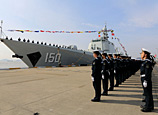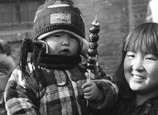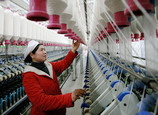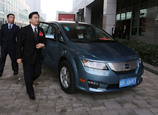
Edited and translated by Ma Xi, People's Daily Online
China’s double surplus situation in the international balance of payment has been reversed, posting surplus in current-account and deficit in capital- and finance-account in 2012. It is the first time that annual deficit has appeared in the capital and finance item since 1999, according to data released by the State Administration of Foreign Exchange (SAFE) recently.
Data show that the current-account surplus in China’s international payment amounted to 214 billion U.S. dollars, and the deficit in capital and finance account was about 117 billion U.S. dollars in 2012. International reserve asset increased 96.5 billion U.S. dollars.
Foreign exchange reserve assets in the balance of international payment increased 99 billion U.S. dollars, a year-on-year decrease of 74 percent in 2012. The profit in the balance of international payment posted deficit of 23.5 billion U.S. dollars.
China faces capital outflow pressure
The capital account and finance account saw deficit of 117 billion U.S. dollars in 2012, indicating that the double surplus situation in the international payment balance which had lasted 14 years was reversed.
An official from the SAFE said the deficit in capital account and finance capital reflected China is faced with pressure of capital outflow due to lower global economy growth, world financial turbulence and national economy growth deceleration.
He added the change in the international balance of payment indicated that China’s capability of independence balance in the world payment has been enhanced.
Profit projects deficit result from investment structure
The balance of international payment posted a deficit of 23.5 billion U.S. dollars last year. The SAFE said the deficit does not mean external investment losses.
As of the end of September 2012, 67 percent of China’s total external investment was reserve assets mainly in the form of debt investments. And about 61 percent of China’s total external liability is foreign direct investment into China.
Generally, earning rate of equity investment is larger than that of the debt investment. The earning rate of China’s external assets was 3 percent, and the earning rate of foreign investment into China was 6 percent in 2012. The 23.5-billion-U.S. dollar deficit reflected the structural differences between China’s external investment and foreign investment in China.
Read the Chinese version at: 國際收支“雙順差”局面扭轉, Source: Beijing Times
















 Entrepreneur takes 48 buses to go home
Entrepreneur takes 48 buses to go home


![]()
